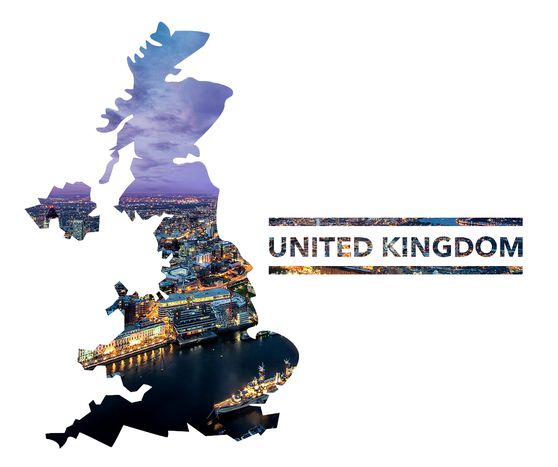
Social innovation in The United Kingdom
Published on
Being the world’s fifth largest economy behind the United-States, Japan and Germany, the United Kingdom has many assets which makes it a territory very open to the world. At the crossroads between the Anglo-Saxon culture and a European politics foothold, the country was able to rapidly differentiate itself from the other major economies.
 Being a former industrial power and the pioneer of the second industrial revolution, the UK progressively became part of the service sector and the City is now the first financial center in the world. On its two square kilometers, 2.7 billions of dollars currencies are exchanged everyday that is to say 40% of the global flow. It is also the place where 70% of the world’s bond securities are issued and sold. The City of London is a real national gem and also a powerful lobby that tries to have an influence in Brussels.
Being a former industrial power and the pioneer of the second industrial revolution, the UK progressively became part of the service sector and the City is now the first financial center in the world. On its two square kilometers, 2.7 billions of dollars currencies are exchanged everyday that is to say 40% of the global flow. It is also the place where 70% of the world’s bond securities are issued and sold. The City of London is a real national gem and also a powerful lobby that tries to have an influence in Brussels.
Following the numerous financial drifts observed in recent years (outrageous speculation, more and more complex timber products, shadow banking, etc), it is interesting to see that a alternative finance is developing.
Within this very Anglo-Saxon new jargon, the notion of “impact investing”, an investment with a dual social and financial function, is a particularly striking example.
The United Kingdom is a world leader in social investment. Since the Labour government backed the creation of a Social Investment Task Force in 2000, we have seen a steady build up of support from leading figures in the public, private and voluntary sectors.
Throughout the country, uk national advisory board to the social impact investment taskforce published a very complete report describing the history and the current situation of impact investing in the UK.
Moreover, a large number of actors are involved in the development of impact investing on the English market: public institutions, intermediaries, or even investors.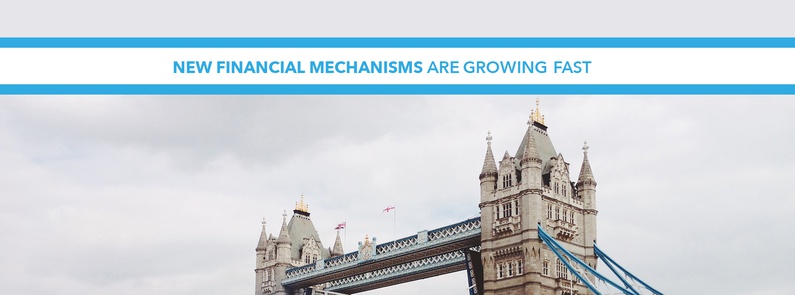
Big Society capital
Two years after the creation of « Big Society » by the British government, the « Big Society Capital » was established.
Big Society Capital (BSC) was launched in April 2012 with £400m of unclaimed assets and £200m of equity from the Merlin Banks. This wholesale institution is the first of its kind in the world and was established to develop and shape a sustainable social impact investment market in the UK. Its role as a wholesale financier is designed to bring millions more in investment into the social sector. By the end of its second year, Big Society Capital had made £150 million of investment commitments.
Big Society Capital invests is a range of social investment finance intermediaries (SIFIs), which are organisations that provide appropriate and affordable finance and support to social sector organisations that are tackling some of our most intractable social problems.
ClearlySo
ClearlySo is a UK based financial services firm, specialised in social impact investment. They provide capital raising and advisory services to funds entrepreneurs generating social and environmental value. They help investors discover innovative opportunities to make social and financial returns.
They were approved as one of the first Investment and Contract Readiness Fund (ICRF) Providers in July 2012 and run the first UK dedicated social impact angel investor group called ‘Clearly Social Angels’. They also manage investor relationships with leading institutional investors, including foundations, impact investment funds, banks and corporations.
Global Impact Investing Network
The Global Impact Investing Network is a not-for-profit organization dedicated to increasing the scale and effectiveness of impact investing.
Impact investments are investments going into companies, organizations, and funds with the intention to generate measurable social and environmental impact alongside a financial return.
Global Innovation fund
The Global Innovation Fund invests in social innovations that aim to improve the lives and opportunities of millions of people in the developing world. Through their grants and risk capital, they support breakthrough solutions to global development challenges from social enterprises, for-profit firms, non-profit organisations, researchers, and government agencies.
Just like Portugal with its laboratorio de investimento social (see our article : Social Innovation in Portugal), the United Kingdom has shown creativity in order to reinvent its financing tools.
The Social impact Bonds
Together, both contacting set output targets that are necessarily better than the actual ones. If they are met, the investors who have given their money to the chosen social organization will perceive a certain rate of return on their investment. If they are exceeded, that remuneration will be increased. If, on the contrary, they aren’t met, the investors won’t get anything: it’s a simple charitable giving.
The Community shares
Community Shares are the issue of equity shares to the local community and broader public – rather than targeting investment from high net worth individuals and/or institutional investors. Typically, community share issues are used as a vehicle to raise investment from the very people who will stand to benefit (socially, environmentally, and economically) from the activities of the issuing organization.
To date, this method of financing has been popular and effective for local community renewable energy projects, buildings, shops, pubs, local food schemes, sports clubs, and other local enterprise initiatives.”
Video “What are community shares”
Cf. ClearlySo – Guide for the ambitious Social Entrepreneur, 3rd Edition
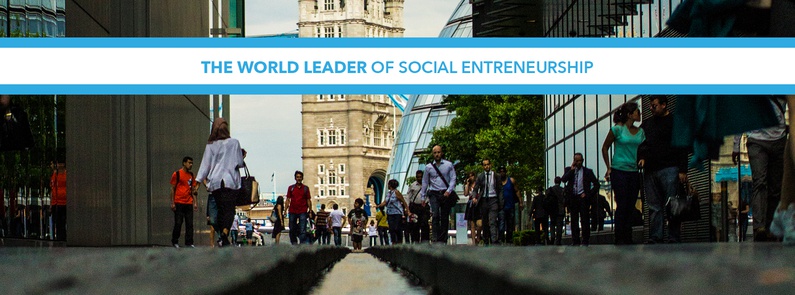 During the last 15 years, British public institutions massively financed social entrepreneurship (more than 350 million pounds were invested). Along with fiscal incentives and serious legal reforms, philanthropic funds and private funds also greatly helped its structural development.
During the last 15 years, British public institutions massively financed social entrepreneurship (more than 350 million pounds were invested). Along with fiscal incentives and serious legal reforms, philanthropic funds and private funds also greatly helped its structural development.
Social enterprise UK
SEUK is the national body for social enterprise.
Their members aren’t just social enterprises. They also include private businesses, charities and public sector organizations that support their vision of a world where social enterprise is the usual way of doing business.
They
• Run effective campaigns for their members and lobby on the sector’s behalf
• Carry out robust and respected research to help paint a picture of the UK’s social enterprise movement
• Build networks between social enterprises
• Raise the profile of people and social enterprises in the sector
Nesta
Nesta is an organization dedicated to supporting ideas that can help improve all our lives, with activities ranging from early stage investment to in-depth research and practical programs. They don’t work alone – “we rely on the strength of the partnerships we form with others to make change happen”.
Young foundation
The Young Foundation is working to create a more equal and fair society, where each individual can be fulfilled in their own terms. They work with the public and private sectors and civil society to empower people to lead happier and more meaningful lives.
Unlimited
UnLtd is the leading provider of support to social entrepreneurs in the UK and offers the largest such network in the world. UnLtd resources hundreds of individuals each year through its core Awards program. UnLtd operates by investing directly in individuals and offering a complete package of resources; from Awards of funding, to ongoing advice, networking and practical support.
 Increasingly active regarding social innovation subjects, English universities try to act as a bridge between the research community and the policy makers.
Increasingly active regarding social innovation subjects, English universities try to act as a bridge between the research community and the policy makers.
Oxford Martin Commission for Future Generations The Oxford Martin Commission for Future Generations is a group of 19 international leaders from government, business, academia, media and civil society working to address the growing short-term preoccupations of modern politics and business and identify ways of overcoming today’s gridlock in key international negotiations. Chaired by Pascal Lamy, the former Director-General of the World Trade Organization, the Oxford Martin Commission’s report, Now for the Long Term, is the product of a year-long process and debate on the successes and failures in addressing global challenges over recent decades.
Schumacher College
Schumacher College has an enviable reputation for cutting-edge learning. Their work is to inspire, challenge and question ourselves as co-inhabitants of the world, to ask the questions we all struggle to find answers to and to find sound knowledge, intuition and wonder in their search for solutions.
They bring together the leading thinkers, activists and practitioners internationally, to deliver a unique brand of small group learning experiences. This learning takes place in the classroom, the gardens, the kitchen – it is part of everything they do.
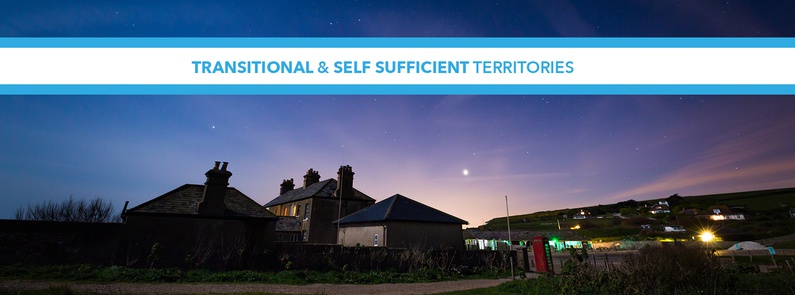 Just like the Tarifa Eco Center in Spain, many transitional territories exist in the United-Kingdom. May they act on the scale of a neighbourhood, of a village or of a town, they are the precursors of new models of life in society.
Just like the Tarifa Eco Center in Spain, many transitional territories exist in the United-Kingdom. May they act on the scale of a neighbourhood, of a village or of a town, they are the precursors of new models of life in society.
Bedzed (Bioregional)
BedZED challenges conventional approaches to housing by tackling sustainability in every area from the outset. It slashes heat, electricity and water demand, eliminating the need for space heating and reducing water consumption by a third. It has designed facilities and services that make it easy to reduce waste to landfill, recycle waste and reduce car use.
Bedzed is an ecodistrict or eco-district, which is a neologism associating the terms “district” and “eco” as an abbreviation of ecological. It designates an urban planning aiming to integrate “sustainable development” objectives and reduce the ecological footprint of the project. This notion insists on the consideration of the whole environmental issues by attributing to them ambitious levels of requirements.
Findhorn
The Findhorn Foundation is a spiritual community, ecovillage and an international centre for holistic learning, helping to unfold a new human consciousness and create a positive and sustainable future.
The Findhorn Ecovillage situated in the beautiful Findhorn Bay of Moray is a synthesis of the very best of current thinking on sustainable human settlements. Within the ecovillage, sustainable values are expressed in the built environment with ecological houses, innovative use of building materials such as local stone and straw bales, beauty in the architecture and gardens, and applied technology in the Living Machine sewage treatment facility and electricity-generating wind turbines. Sustainable values are also expressed in the community’s social, economic and educational initiatives.
Totnes
Totnes was the first initiative developed in the transition network.
Transition Network is a charitable organisation whose role is to inspire, encourage, connect, support and train communities as they self-organise around the Transition model, creating initiatives that rebuild resilience and reduce CO2 emissions.
A Transition town, or more generally a transition initiative, is a grassroot community project that seeks to build resilience in response to peak oil, climate destruction, and economic instability by creating local groups that uphold the values of the transition network.
Center for Alternative technology
CAT is an education and visitor centre demonstrating practical solutions for sustainability. They cover all aspects of green living: environmental building, eco-sanitation, woodland management, renewable energy, energy efficiency and organic growing.
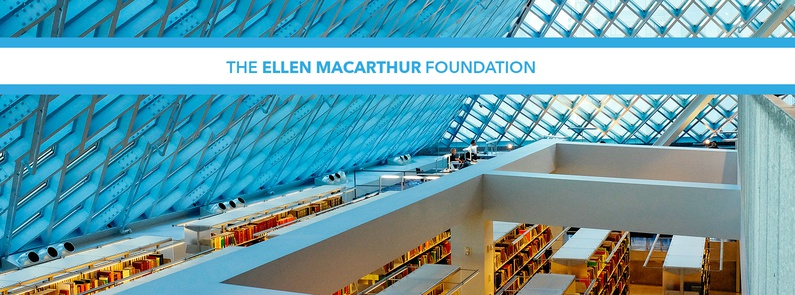 The Ellen MacArthur Foundation is a charity with the aim of inspiring a generation to re-think, re-design & build a positive future through the framework of a circular economy.
The Ellen MacArthur Foundation is a charity with the aim of inspiring a generation to re-think, re-design & build a positive future through the framework of a circular economy.
The Foundation was established in September 2010 with the aim of accelerating the transition to a regenerative, circular economy. The idea of a circular economy synthesised a number of existing strands of work and specifically enabled the analysis and communication of its broad economic potential. The Foundation, as part of its educational mission, works to bring together complementary schools of thought and create a coherent framework, thus giving the concept a wide exposure and appeal.



